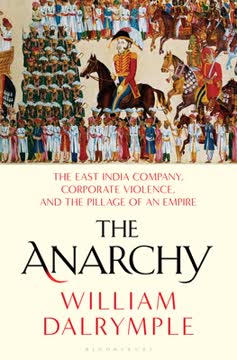Key Takeaways
1. The Koran: A Divine Text, Central to Islam
The most sacred text of the religion, and the most authoritative text of the culture, was the Koran.
Muslim Scripture. The Koran is the central religious text of Islam, believed by Muslims to be the literal word of God (Allah) as revealed to the Prophet Muhammad through the angel Gabriel. It serves as the ultimate guide for Muslims in all aspects of life, from religious practices to moral conduct.
- It is divided into 114 chapters called Suras, which vary in length and content.
- The language of the Koran is Arabic, and it is considered to be the most perfect form of the language.
- Muslims believe that the Koran is the final and complete revelation of God's will to humanity.
Cultural Authority. Beyond its religious significance, the Koran is also the most authoritative text in Islamic culture. It has shaped Islamic law, ethics, art, and literature for over 1400 years. The Koran's influence extends to all aspects of Muslim life, from personal conduct to social and political structures.
- It is the foundation of Islamic jurisprudence (Sharia).
- It is a source of inspiration for Islamic art and calligraphy.
- It is a unifying force for Muslims worldwide, regardless of their ethnic or cultural background.
Global Impact. The Koran's influence is not limited to the Muslim world. It has had a profound impact on global history, culture, and politics. The spread of Islam and the rise of Islamic civilization have been closely linked to the Koran's teachings.
- Islam is the second-largest religion in the world, with over a billion followers.
- The Koran has been translated into numerous languages, making its message accessible to people worldwide.
- It continues to be a source of debate and discussion in both religious and secular contexts.
2. God's Friends and Enemies: A Clear Moral Divide
Surely God’s friends – no fear shall be on them, neither shall they sorrow.
Two Groups. The Koran presents a clear distinction between those who are aligned with God and those who are not. God's friends are characterized by their belief, good deeds, and piety, while His enemies are marked by their disbelief, wrongdoing, and idolatry. This division is not merely a matter of religious affiliation but a reflection of one's moral standing.
- God's friends are promised Paradise, a place of eternal bliss and reward.
- God's enemies are threatened with Hellfire, a place of eternal punishment and suffering.
- The Koran emphasizes the importance of choosing the right path and avoiding the wrong one.
Belief and Action. The criteria for being among God's friends are not limited to mere belief but also include righteous actions. The Koran stresses the importance of both faith and good deeds as essential components of a virtuous life.
- Believers must worship God alone and avoid associating others with Him.
- They must perform good deeds, such as giving to charity, helping the needy, and praying regularly.
- They must strive to live a life of piety and righteousness, following God's commandments.
Consequences of Disbelief. The Koran warns against the consequences of disbelief and wrongdoing. Those who reject God's guidance and engage in sinful behavior are described as being among God's enemies, facing severe punishment in the afterlife.
- Idolatry, or the worship of false gods, is considered a grave sin.
- Hypocrisy, or pretending to be a believer while harboring disbelief, is also condemned.
- The Koran emphasizes the importance of sincerity and devotion in one's relationship with God.
3. Guidance and Repentance: Paths to Salvation
Say: ‘The truth is from your Lord; so let whosoever will believe, and let whosoever will disbelieve.’
Divine Guidance. The Koran emphasizes that God provides guidance to humanity through His messengers and prophets, who bring His message and teachings. This guidance is not a silent, invisible force but a public and explicit communication of God's will.
- Prophets like Noah, Abraham, Moses, and Jesus are seen as messengers of God.
- The Koran itself is considered a form of divine guidance, a book of truth and wisdom.
- God's guidance is meant to lead people to the Straight Path, the path of righteousness and salvation.
Repentance and Forgiveness. The Koran also highlights the importance of repentance for those who have strayed from the right path. God is described as merciful and compassionate, willing to forgive those who sincerely turn to Him in repentance.
- Repentance involves acknowledging one's sins, seeking forgiveness from God, and resolving to change one's ways.
- God's mercy is said to encompass all things, offering hope for redemption to all who seek it.
- The Koran emphasizes that it is never too late to turn to God and seek His forgiveness.
Human Choice. While God provides guidance and offers forgiveness, the Koran also acknowledges the role of human choice in determining one's fate. People are free to choose whether to believe in God and follow His guidance or to reject it and follow their own desires.
- The Koran states that the truth is from God, and people are free to believe or disbelieve.
- However, those who reject God's guidance are warned of the consequences of their choice.
- The Koran emphasizes the importance of making the right choices in this life to secure a good outcome in the afterlife.
4. God's Nature: Cosmic Power and Intimate Presence
We indeed created man; and We know what his soul whispers within him, and We are nearer to Him than the jugular vein.
Cosmic Lord. The Koran portrays God as the Lord of all Being, the creator and owner of the universe. He is described as having absolute authority and power over all things, both in the heavens and on earth.
- God is the Living One, the Everlasting, who is not subject to slumber or sleep.
- He created the heavens and the earth in six days, and He sustains them by His power.
- He is the ultimate source of all existence, and everything belongs to Him.
Intimate Knowledge. Despite His cosmic grandeur, the Koran also emphasizes God's intimate knowledge of and involvement in human affairs. He is not a distant or detached deity but is aware of every detail of human life, down to the thoughts and feelings of each individual.
- God knows what is in land and sea, and not a leaf falls without His knowledge.
- He knows what each person's soul whispers within them, and He is closer to them than their jugular vein.
- This intimate presence of God is meant to inspire both awe and comfort in believers.
Ambivalent Nature. The Koran presents God as both merciful and vengeful, compassionate and wrathful. He is responsive to those who turn to Him in repentance, but He also punishes those who reject His guidance and engage in wrongdoing.
- God's mercy is said to encompass all things, but His justice is also absolute.
- He can lead people astray as well as guide them, and He holds them accountable for their actions.
- This ambivalence in God's nature is a reminder of His absolute sovereignty and power.
5. Modernity's Impact: Dissemination and Interpretation
Modern conditions make it possible to disseminate a scripture among those who believe in it as never before.
Increased Accessibility. Modern technology has revolutionized the dissemination of the Koran, making it more accessible to believers than ever before. Printing, audio recordings, and the internet have all contributed to the widespread availability of the text.
- The printing press has made it possible to produce vast quantities of the Koran, far exceeding the number of handwritten copies.
- Audio recordings have allowed believers to hear the Koran recited at any time and place.
- The internet has made the text of the Koran available to anyone with an internet connection.
Homogenization and Fragmentation. While modernity has increased the accessibility of the Koran, it has also led to a degree of homogenization, with a standard Egyptian edition becoming widely adopted. However, this has also led to fragmentation, with some non-Arab Muslims seeking translations in their own languages.
- The cultural prestige of Egypt has led to the adoption of a standard Egyptian edition of the Koran.
- The mismatch between the Arabic of the Koran and the local languages of non-Arab Muslims has led to calls for translations.
- The tension between the desire for uniformity and the need for intelligibility has created a fault line in the modern Islamic world.
Modern Interpretations. Modern commentators have grappled with the challenge of interpreting the Koran in light of modern values, such as science, tolerance, and gender equality. This has led to a variety of interpretations, ranging from those that seek to reconcile the Koran with modern values to those that reject them.
- Some commentators have sought to read scientific truths into the Koran, while others have rejected this approach.
- Some have emphasized the Koran's message of tolerance, while others have focused on its more restrictive passages.
- Some have sought to reinterpret passages that seem to endorse male dominance, while others have upheld traditional interpretations.
6. Traditional Practices: The Koran as a Sacred Object
For the Turks ‘it is a fearful offence for a man to sit, even unwittingly, on the Koran’.
Sanctity of the Codex. In traditional Islam, the Koran is not just a sacred text but also a sacred object. The physical book itself is treated with great reverence and respect, reflecting the belief that it contains the literal word of God.
- Muslims are careful not to place the Koran below the waist or on the floor.
- They often place it on a special stand or cushion when reading it.
- They avoid touching it when in a state of ritual impurity.
Ritual Purity. The concept of ritual purity plays a significant role in the handling of the Koran. Muslims are expected to be in a state of ritual purity before touching or reciting the Koran, reflecting the belief that it is a sacred text that should be treated with utmost respect.
- Ritual impurity can result from various bodily functions, such as urination or menstruation.
- Muslims must perform ablutions (ritual washing) to purify themselves before handling the Koran.
- Non-Muslims are generally not allowed to touch the Koran, as they are considered to be in a state of permanent impurity.
Practical Implications. The sanctity of the Koranic codex has various practical implications, from the way it is stored and handled to the way it is disposed of when it becomes worn out. These practices reflect the deep reverence that Muslims have for the Koran as the word of God.
- Worn-out copies of the Koran are not casually discarded but are buried or stored in a safe place.
- Coins bearing Koranic verses are treated with care, as they are considered to contain God's word.
- The handling of the Koran is governed by a set of rules and customs that reflect its sacred status.
7. Textual Transmission: Fidelity and Variation
The fidelity of the transmission is demonstrated by the fact that very early anomalies in the text have been faithfully preserved.
Preservation Strategies. Cultures that value written texts employ various strategies to ensure their accurate transmission. These strategies range from creating a definitive version of the text to relying on the diligence of copyists and the reinforcement of oral recitation.
- The "once and for all" strategy involves creating a permanent and definitive embodiment of the text.
- The "copyist" strategy relies on the faithful reproduction of the text by scribes over time.
- Oral recitation can also play a crucial role in reinforcing the written transmission of a text.
Supporting Apparatus. To ensure the accurate transmission of the Koran, Muslim scholars developed a supporting apparatus of scholarship, including commentaries, works on variant readings, and other aids to understanding the text.
- Commentaries provide interpretations of the text, addressing linguistic difficulties and filling in narrative gaps.
- Works on variant readings document the different traditions of recitation that have emerged over time.
- These scholarly aids help to ensure that the text is understood and transmitted accurately.
Textual Variations. Despite the efforts to ensure its accurate transmission, the Koran has been subject to some textual variations, particularly in the early centuries of Islam. These variations are primarily in the vocalization and diacritical marks, but they also include some minor differences in the consonantal text.
- The Arabic script, which lacks short vowels and has ambiguous consonants, has led to some variations in pronunciation and reading.
- Different traditions of recitation have emerged, each with its own set of variations.
- These variations, while minor, are a reminder that the transmission of the Koran has been a human endeavor.
8. The Koran in Worship: Recitation and Ritual
The Muslim worshipper does not read the Koran, but rather recites it.
Recitation over Reading. In Muslim worship, the Koran is primarily recited rather than read. This emphasis on oral recitation reflects the belief that the Koran is a living word that should be heard and internalized, not just read silently.
- Muslims are encouraged to memorize the Koran and recite it regularly.
- The recitation of the Koran is an essential part of the daily prayers and other religious rituals.
- The act of reciting the Koran is considered a form of worship in itself.
Liturgical and Semi-Liturgical Roles. The Koran plays a central role in both the formal liturgy of the five daily prayers and in a wide range of semi-liturgical activities. It is used in religious instruction, personal devotions, and social gatherings.
- The Fatiha, the first Sura of the Koran, is recited in every prayer.
- Other passages from the Koran are recited in various contexts, such as during illness or times of personal crisis.
- The recitation of the entire Koran is a common practice in many Muslim communities.
Chanting and Melody. The recitation of the Koran is not done in a plain speaking voice but is chanted in a melodious style. This chanting is not considered music but a form of heightened speech that is meant to evoke religious emotions and enhance the spiritual experience.
- There are different styles of recitation, ranging from the plain style used in prayer to the more elaborate style used by professional reciters.
- The art of Koranic recitation is highly developed, with skilled reciters often achieving great fame and recognition.
- The musical aspect of recitation is not formally codified but is passed down through oral tradition.
9. The Koran as Truth: Interpretation and Application
The Koran is a book sent down ‘to make everything clear’, a repertoire of truths which cry out for the attention of the believers.
Divine Truth. The Koran is considered by Muslims to be the ultimate source of truth, containing God's guidance for all aspects of life. Its teachings are not just religious doctrines but also practical guidelines for living a virtuous and fulfilling life.
- The Koran is seen as a book that makes everything clear, providing answers to all of life's questions.
- Its truths are meant to be applied to everyday life, guiding believers in their thoughts, words, and actions.
- Muslims are encouraged to study the Koran and reflect on its meanings to gain a deeper understanding of God's will.
Commentaries and Exegesis. To understand the Koran's truths, Muslim scholars have developed a rich tradition of commentary and exegesis. These commentaries provide interpretations of the text, addressing linguistic difficulties, filling in narrative gaps, and exploring the deeper meanings of the verses.
- Commentaries vary in length, style, and focus, reflecting the diversity of Islamic thought.
- They are not considered to be infallible but are seen as valuable tools for understanding the Koran.
- The traditional commentators sought to understand the Koran in its historical and cultural context.
Application in Daily Life. The Koran's truths are not meant to be confined to the realm of religious practice but are meant to be applied to all aspects of daily life. Muslims are encouraged to use the Koran as a guide in their personal relationships, business dealings, and social interactions.
- Koranic references are often used in everyday conversation, reflecting the deep penetration of scripture into Muslim culture.
- The Koran provides guidance on ethical conduct, social justice, and personal responsibility.
- Muslims are encouraged to live their lives in accordance with the teachings of the Koran, striving to embody its values in their actions.
10. The Koran as Dogma: Uncreated and Inimitable
The doctrines which developed around the Koran accorded it a more elevated status than that of the Bible in either Judaism or Christianity.
Uncreated Word. A central dogma in Islam is that the Koran is the uncreated word of God, co-eternal with Him. This doctrine emerged from a theological controversy in the early centuries of Islam, with those who denied the uncreated nature of the Koran being considered heretics.
- The doctrine of the uncreated Koran is meant to emphasize its divine origin and authority.
- It is a rejection of the idea that the Koran is a human creation or a product of history.
- It is a fundamental tenet of Sunni Islam, with Shī'ites holding a somewhat different view.
Inimitability. Another key dogma is that the Koran is inimitable, meaning that no human being can produce anything like it. This doctrine is based on a challenge in the Koran itself, where God dares anyone to produce a text like it.
- The inimitability of the Koran is seen as proof of its divine origin and its literary perfection.
- It is a rejection of the idea that the Koran is a product of human creativity or imagination.
- It is a source of pride and inspiration for Muslims, who see it as a unique and unparalleled text.
Implications of Dogma. The doctrines of the uncreated and inimitable nature of the Koran have had a profound impact on Islamic thought and culture. They have contributed to the reverence that Muslims have for the Koran and have shaped their understanding of its authority and significance.
- These doctrines have led to a strong emphasis on the literal interpretation of the Koran.
- They have also contributed to the resistance to higher criticism and other forms of historical analysis.
- They have made the Koran a central focus of Islamic intellectual and spiritual life.
11. The Koran's Formation: Collection and Revelation
The heavenly archetype of the Koran is a book. The Koran we have here on earth is likewise a book.
Piecemeal Revelation. The Koran was not revealed all at once but in a piecemeal fashion over a period of 23 years. The revelations were transmitted orally by the angel Gabriel to the Prophet Muhammad, who then recited them to his followers.
- The revelations were often linked to specific events or circumstances in the Prophet's life.
- The order of the revelations is different from the order of the Suras in the Koran.
- The piecemeal nature of the revelation is reflected in the concept of abrogation, where some verses are said to have superseded others.
Collection Process. The collection of the Koran into a single codex was a gradual process that took place after the Prophet's death. The standard account attributes the final collection to the Caliph Uthman, who is said to have standardized the text and ordered the destruction of other versions.
- The collection process involved gathering the written and memorized portions of the Koran.
- The Uthmanic codex is the standard text of the Koran that is used by Muslims today.
- There are some variations in the early manuscripts and reports, but the overall text is remarkably consistent.
Historical Context. The formation of the Koran took place in a specific historical context, with the revelations reflecting the social, political, and religious circumstances of the time. Understanding this context is essential for interpreting the Koran accurately.
- The early Meccan revelations are often characterized by their poetic style and their focus on the oneness of God.
- The later Medinan revelations are often more prosaic and focus on legal and social issues.
- The historical context of the revelations is a key factor in understanding their meaning and significance.
Last updated:
FAQ
What's "The Koran: A Very Short Introduction" about?
- Overview of the Koran: The book provides a concise introduction to the Koran, exploring its role as the central religious text of Islam. It examines the Koran's historical context, its compilation, and its significance in Islamic culture.
- Scripture and Authority: It discusses the concept of scripture, comparing the Koran to other religious texts like the Bible and the Vedas, and highlights its unique status as the unaltered word of God in Islam.
- Cultural and Historical Context: The book delves into the historical and cultural backdrop of the Koran's revelation, including the life of the Prophet Muhammad and the early Islamic state.
- Modern Relevance: It also addresses the Koran's role in the modern world, including its interpretation, dissemination, and the challenges it faces in contemporary society.
Why should I read "The Koran: A Very Short Introduction"?
- Comprehensive Introduction: The book offers a thorough yet concise overview of the Koran, making it accessible to readers unfamiliar with Islamic texts.
- Cultural Insight: It provides valuable insights into the cultural and historical context of the Koran, enhancing understanding of its significance in Islamic civilization.
- Modern Relevance: The book discusses the Koran's role in the modern world, including its interpretation and the challenges it faces, making it relevant for contemporary readers.
- Comparative Analysis: It compares the Koran with other religious texts, offering a broader perspective on the concept of scripture and its role in different cultures.
What are the key takeaways of "The Koran: A Very Short Introduction"?
- Central Role of the Koran: The Koran is the central religious text of Islam, regarded as the literal word of God and a guide for all aspects of life.
- Historical Compilation: The Koran was compiled shortly after the death of the Prophet Muhammad, with the Caliph 'Uthman playing a key role in its standardization.
- Interpretation and Transmission: The book explores the various ways the Koran has been interpreted and transmitted over the centuries, highlighting the role of oral and written traditions.
- Modern Challenges: It addresses the challenges the Koran faces in the modern world, including issues of translation, interpretation, and its place in a globalized society.
How does Michael A. Cook define the concept of scripture in the book?
- Scripture as Authority: Cook defines scripture as a text that claims authority, often seen as sacred and central to a culture's identity.
- Preservation Methods: He discusses how societies preserve authoritative texts, whether through oral traditions or written forms, and the challenges involved.
- Comparative Perspective: The book compares the Koran with other scriptures like the Bible and the Vedas, highlighting differences in preservation and authority.
- Koran's Unique Status: Cook emphasizes the Koran's unique status as a scripture that is both oral and written, with a strong emphasis on its unaltered transmission.
What is the historical context of the Koran's revelation according to the book?
- Prophet Muhammad's Role: The Koran was revealed to the Prophet Muhammad in the early 7th century, primarily in Mecca and Medina, through the angel Gabriel.
- Arabian Peninsula: At the time, the Arabian Peninsula was a tribal society with a mix of polytheistic and monotheistic beliefs, setting the stage for Islam's emergence.
- Early Islamic State: Muhammad's success in Medina led to the establishment of an Islamic state, which played a crucial role in the Koran's dissemination and preservation.
- Cultural Interactions: The book also touches on the interactions between early Muslims and other religious communities, influencing the Koran's content and interpretation.
How was the Koran compiled and standardized?
- 'Uthman's Role: The Caliph 'Uthman is credited with standardizing the Koran around 650 CE, creating a single authoritative text to prevent divergent recitations.
- Collection Process: The compilation involved collecting various written and oral fragments of the Koran, with contributions from Muhammad's companions and scribes.
- Destruction of Variants: 'Uthman ordered the destruction of non-standardized versions to ensure uniformity, a move that solidified the Koran's text.
- Historical Challenges: Despite 'Uthman's efforts, some early variants persisted, and the book discusses the challenges of maintaining textual fidelity.
What are the main themes and messages of the Koran as discussed in the book?
- Monotheism and Guidance: The Koran emphasizes monotheism, the oneness of God, and provides guidance for moral and legal conduct.
- Prophetic Stories: It includes stories of past prophets, such as Moses and Jesus, to illustrate moral lessons and divine intervention.
- Judgment and Afterlife: The Koran frequently addresses themes of judgment, the afterlife, and the consequences of one's actions.
- Community and Law: It outlines the duties and responsibilities of the Muslim community, including social justice and legal principles.
How does the book address the interpretation of the Koran in the modern world?
- Modern Challenges: The book discusses the challenges of interpreting the Koran in a modern context, including issues of scientific compatibility and gender equality.
- Diverse Interpretations: It highlights the diversity of interpretations, from traditional to modernist and fundamentalist perspectives, reflecting varying cultural and historical influences.
- Role of Commentaries: Commentaries play a crucial role in interpreting the Koran, with modern commentators often grappling with contemporary values and issues.
- Global Influence: The book also examines the Koran's influence in a globalized world, including its role in shaping Islamic identity and its interaction with other cultures.
What are some of the linguistic and textual challenges of the Koran mentioned in the book?
- Obscure Words: The Koran contains words and phrases that remain obscure or ambiguous, posing challenges for translators and interpreters.
- Rhyme and Rhythm: Its use of rhyme and rhythm, while poetic, can complicate translation and interpretation, as these elements may not carry over into other languages.
- Variant Readings: The book discusses the existence of variant readings in early manuscripts, highlighting the complexities of textual transmission.
- Translation Issues: Translating the Koran is fraught with challenges, as it involves not only linguistic but also cultural and theological considerations.
How does the book compare the Koran to other religious texts?
- Scripture vs. Classic: The book distinguishes between scriptures like the Koran and classics like the Homeric epics, emphasizing the Koran's religious authority.
- Preservation and Authority: It compares the methods of preservation and the authority ascribed to the Koran with those of other texts like the Bible and the Vedas.
- Cultural Centrality: The Koran's centrality to Islamic culture is contrasted with the roles of other religious texts in their respective cultures.
- Unique Features: The book highlights the Koran's unique features, such as its compactness, late emergence, and status as the unaltered word of God.
What are the best quotes from "The Koran: A Very Short Introduction" and what do they mean?
- "The Koran is the Muslim scripture, that is to say the scripture of the followers of Islam." This quote underscores the Koran's central role in Islam, serving as the foundational text for the religion.
- "The Koran is as much a written text as the Bible." This highlights the Koran's dual nature as both an oral and written scripture, emphasizing its importance in Islamic tradition.
- "The Koran is a book sent down ‘to make everything clear’." This reflects the Koran's purpose as a guide for believers, providing clarity on moral, legal, and spiritual matters.
- "The Koran is the paradigmatic scripture, the word of God in the most immediate, uncompromising sense." This quote emphasizes the Koran's status as the ultimate scripture, embodying the direct word of God without human alteration.
How does the book address the dissemination of the Koran in the modern world?
- Printing and Technology: The book discusses the impact of modern technology, such as printing and the internet, on the dissemination of the Koran, making it more accessible than ever.
- Oral Tradition: Despite technological advances, the oral tradition of Koranic recitation remains strong, with modern media amplifying its reach.
- Educational Role: The Koran continues to play a central role in Islamic education, with many Muslims learning to recite and understand it from a young age.
- Cultural Homogenization: The book notes the trend towards cultural homogenization in Koranic recitation and interpretation, influenced by the global reach of modern media.
Review Summary
The Koran: A Very Short Introduction receives mixed reviews. Some praise its concise yet comprehensive coverage of the Quran's history, linguistics, and interpretation. Others criticize its focus on technical details rather than content. Readers appreciate Cook's scholarly approach but find the writing dry and sometimes difficult. The book is commended for its insights into Arabic language and Quranic recitation but criticized for lacking a clear summary of the Quran's teachings. Overall, it's seen as a valuable starting point for academic study, though perhaps not ideal for general readers seeking basic information.
Very Short Introductions Series Series
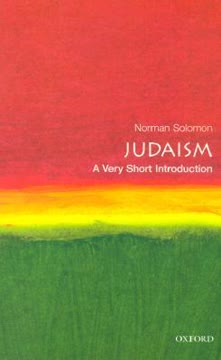
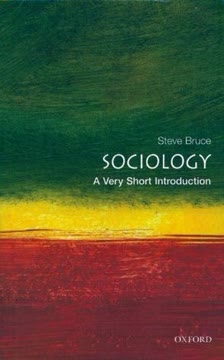
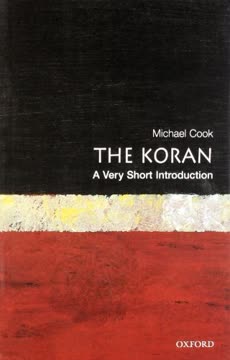
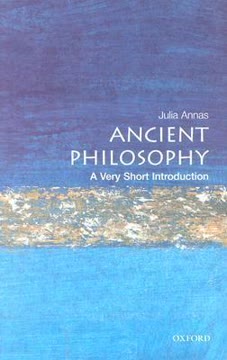
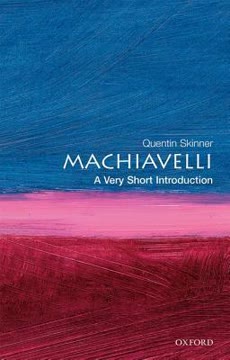
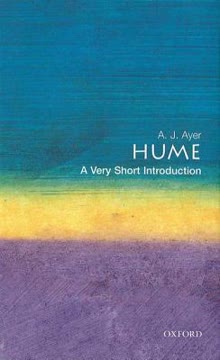

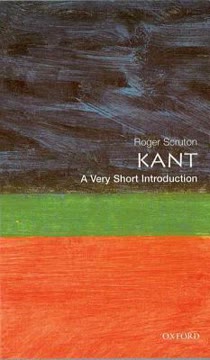
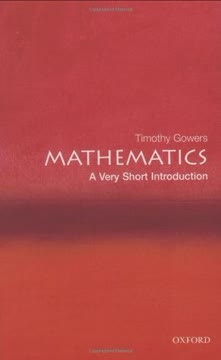
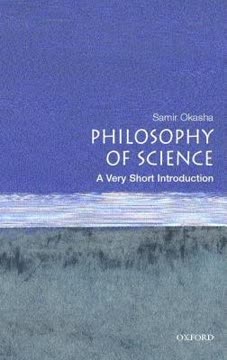
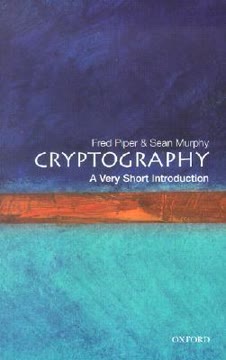
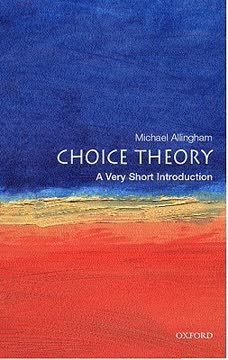
Similar Books
Download PDF
Download EPUB
.epub digital book format is ideal for reading ebooks on phones, tablets, and e-readers.

